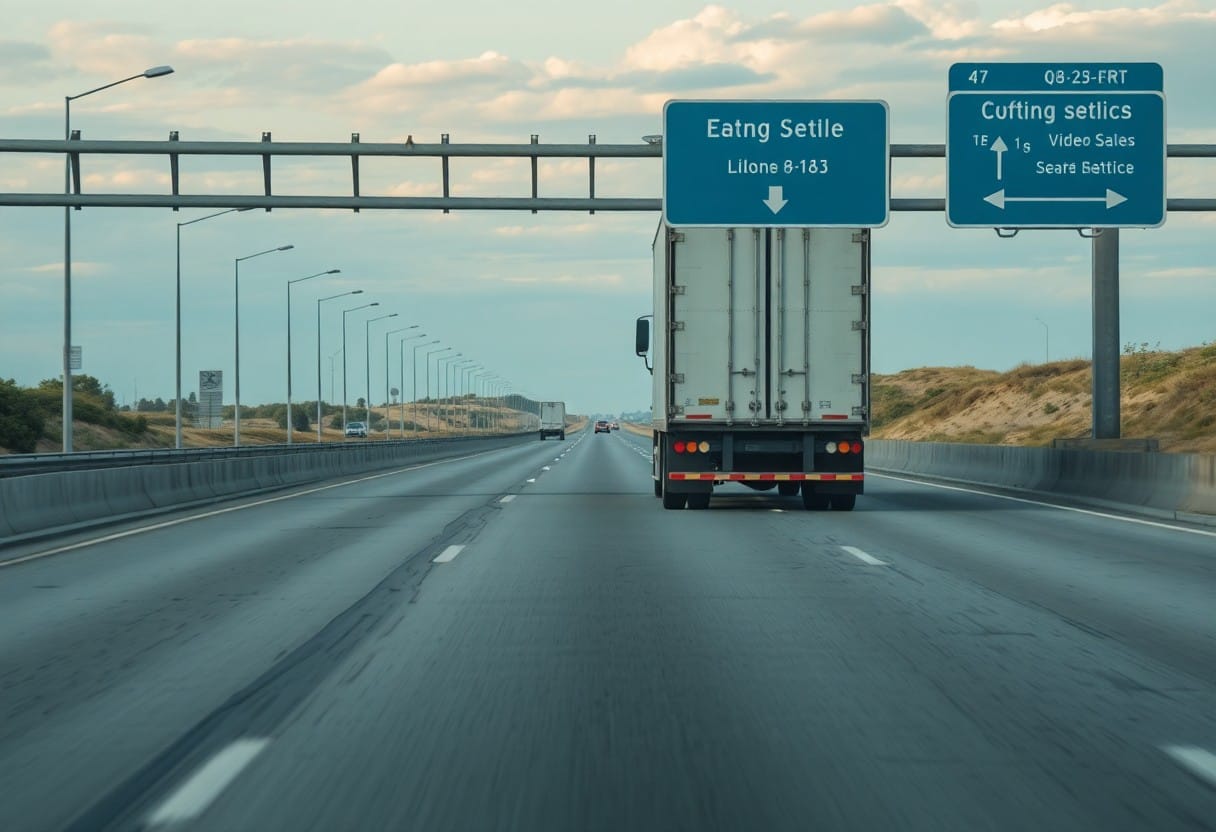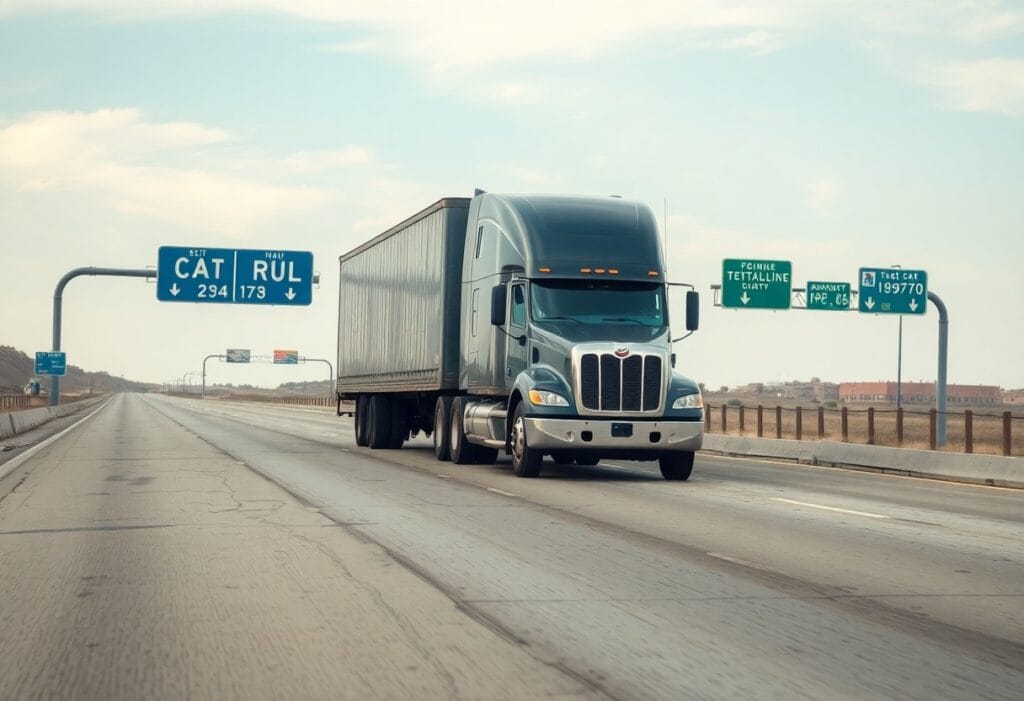Most people may not realize how long-haul trucking significantly impacts your roadways in Mobile. The constant flow of heavy trucks can lead to increased wear and tear on your roads, contributing to potholes and other structural issues. However, you also benefit from the economic growth that this industry brings, as it supports local businesses and creates jobs. Understanding these effects helps you appreciate the balance between transportation efficiency and road maintenance challenges that shape your community’s infrastructure.

Overview of Long-Haul Trucking
Your understanding of long-haul trucking is imperative in comprehending its vast implications on Mobile’s roadways. Long-haul trucking involves the transportation of goods over long distances, typically crossing state lines and covering hundreds or even thousands of miles. This industry is a vital component of supply chains, ensuring that products reach consumers efficiently, but it also brings unique challenges to local infrastructure.
Definition and Scope
To appreciate the impact of long-haul trucking, you must recognize its definition and scope. It encompasses freight transportation that lasts for more than 250 miles and involves a wide variety of cargo types, from perishable foods to automotive parts. The operations require substantial logistical planning and compliance with various regulations, making it a complex but integral part of the transportation sector.
Economic Significance
For many regions, long-haul trucking plays a vital role in economic growth and development. It not only provides jobs for millions but also contributes significantly to the overall GDP. The seamless movement of goods can boost local businesses, enhance market accessibility, and ultimately stimulate consumer spending, all while generating substantial tax revenues for infrastructure maintenance and development.
Plus, long-haul trucking is a powerhouse for the economy, as it serves as the backbone of distribution networks. This sector supports approximately 3.5 million drivers and countless more in logistic-based roles. It enables consumers to access a broad array of products while allowing businesses to scale operations effectively. The significant revenue generated through freight undoubtably underlines the importance of investing in roadway infrastructure to ensure safety and efficiency. However, this growth does come with challenges, as road wear and tear and potential hazards increase alongside the rising volume of trucking activity.
Impact on Road Infrastructure
One of the primary consequences of long-haul trucking is the strain it places on Mobile’s road infrastructure. The constant passage of heavy trucks generates significant wear and tear, leading to a need for ongoing investments in road repairs and enhancements. As a result, the durability of your local roads can diminish over time, potentially affecting traffic patterns and safety.
Wear and Tear on Roads
Infrastructure is inevitably affected by the heavy loads carried by long-haul trucks. The regular movement of these vehicles exacerbates damage, including cracks, potholes, and surface degradation, which can compromise both vehicle safety and traffic flow. As a driver, you may experience a bumpier ride or increased risk of accidents as road conditions worsen.
Maintenance Costs
Costs associated with maintaining the roads can skyrocket due to the extensive damage caused by heavy trucking. Your local government must allocate substantial funds for repairs and upgrades, diverting resources from other crucial services. This financial burden can ultimately affect your tax rates and funding for community initiatives.
Plus, these increased maintenance costs may lead to higher taxes for residents like you, as municipalities struggle to keep up with repair demands. The frequent need for immediate repairs can detract from long-term investments in infrastructure improvements. Moreover, poor road conditions can lead to higher accident rates, resulting in potential injuries and financial costs for drivers. Understanding these implications helps you appreciate the need for investing in sustainable road infrastructure that adequately supports long-haul trucking activities while ensuring your safety on the road.
Traffic Congestion and Safety Issues
Some of the most pressing challenges in Mobile’s transportation landscape stem from increased traffic congestion and associated safety issues caused by long-haul trucking. The influx of large trucks on local roadways can lead to slower traffic flow and increased travel times for all road users, impacting your daily commute and overall road safety.
Increased Truck Traffic
Behind every shipping company’s promise of timely deliveries lies the reality of increased truck traffic in your area. The growing demand for goods has led to more trucks on the road, often clogging your highways and local routes during peak hours, which can be frustrating and hazardous for personal vehicle drivers.
Accident Statistics
For many communities, the presence of more trucks correlates with a rise in accident statistics involving commercial vehicles. Your roads may become battlegrounds for collisions, raising concerns about safety for you and your family.
Even with increased awareness and regulations, the statistics tell a troubling story. Large trucks are involved in approximately 12% of fatal vehicle accidents nationwide, with factor points including their height, weight, and longer stopping distances making them significantly more dangerous in collisions. Accidents often result in serious injuries and fatalities, emphasizing the need for heightened vigilance when sharing the road with these vehicles. For you as a driver, understanding these risks can help foster safer driving habits and encourage infrastructure improvements aimed at alleviating dangers associated with long-haul trucking in your community.
Environmental Considerations
Despite the economic benefits of long-haul trucking, you must consider the environmental consequences associated with this industry. The extensive use of heavy-duty trucks contributes to a range of ecological issues, including increased emissions and pollution, degradation of local ecosystems, and rising noise levels that can impact your quality of life. Understanding these effects can foster community awareness and motivate actions for improvement.
Emissions and Pollution
Along with the demand for goods transportation, trucking generates substantial greenhouse gas emissions, contributing to climate change and air quality deterioration. Diesel engines release harmful pollutants, including nitrogen oxides and particulate matter, which can lead to serious health issues for residents living near busy roadways. You should be mindful of these environmental impacts as they affect not just your community, but also future generations.
Noise Pollution
Besides air pollution, the constant hum and roar of long-haul trucks create significant noise pollution that can disrupt your daily life. The noise generated on highways and local roads can affect your mental well-being, and even disturb wildlife. If you live near major trucking routes, you may often experience increased stress and difficulty concentrating.
Due to the incessant movement of trucks, noise pollution can intrude into your daily activities, making it hard to relax or enjoy peace in your home. Research indicates that prolonged exposure to high noise levels can lead to elevated stress hormones, sleep disturbances, and even cardiovascular diseases. Furthermore, wildlife in the vicinity may suffer as the natural sounds they depend on become drowned out, disrupting their behaviors. It’s important to address these issues in order to improve not only your own living conditions but also that of the surrounding ecosystem.
Local Community Effects
All aspects of long-haul trucking can significantly impact your local community. The presence of freight trucks on roads leads to increased wear and tear, which may result in more frequent road maintenance. Additionally, changes in traffic patterns can affect your daily commute and exacerbate congestion during peak hours. These factors can alter the way you and your neighbors experience mobility in Mobile.
Changes in Traffic Patterns
For many residents, the influx of long-haul trucks has led to noticeable changes in traffic. Increased truck traffic can create congested areas, especially near industrial zones and major highways. As a result, you might find that travel times have lengthened, impacting your ability to plan daily activities effectively.
Access to Local Businesses
Changes in traffic patterns can also affect local businesses in your area. With more trucks passing through, some businesses might experience increased visibility and traffic, potentially leading to higher sales. However, road congestion can make it challenging for customers to access these establishments, which could harm smaller businesses. Striking a balance between the benefits of increased exposure and the challenges posed by traffic is vital for the vitality of your local economy.
The relationship between long-haul trucking and access to local businesses is complex. While increased truck traffic can attract more customers to retail locations, traffic congestion can deter shoppers and hinder deliveries. Businesses must adapt by enhancing signage and marketing to draw in customers despite the logistical challenges. You may notice that some local businesses thrive on the increased visibility, while others struggle due to traffic issues. Understanding this dynamic helps you appreciate the broader economic landscape shaped by long-haul trucking in Mobile.
Policy and Regulatory Responses
Keep in mind that effective policy and regulatory measures are imperative in addressing the challenges posed by long-haul trucking on Mobile’s roadways. You can help advocate for solutions that prioritize safety, infrastructure, and environmental impacts, ensuring a balanced approach that benefits all road users.
Existing Regulations
Across the United States, various regulations govern long-haul trucking to enhance safety and efficiency on the roads. You should be aware that these include weight limits, hours of service regulations, and vehicle inspection requirements aimed at reducing accidents and wear on infrastructure.
Proposed Changes
One area of focus for improvement involves updating regulations to better reflect current road usage and safety needs. You could benefit from understanding how these proposed changes aim to address growing concerns such as vehicle emissions and increased freight traffic.
In addition, emerging proposals suggest implementing stricter emission standards for long-haul trucks to combat air pollution and enhance public health. You might also see initiatives for smart trucking technology that can improve safety and reduce congestion through real-time communication and routing. Ultimately, these changes could lead to safer roadways and a more sustainable transport system, positively influencing the overall quality of life in Mobile.
Final Words
Ultimately, as you consider the effects of long-haul trucking on Mobile’s roadways, it’s vital to understand the impact on infrastructure and daily commuting. The increasing volume of freight traffic can lead to road wear and congestion, affecting not only transport efficiency but also your driving experience. By recognizing these challenges, you can advocate for better road maintenance and improvements, contributing to a safer and more efficient transportation system for everyone in your community.


















